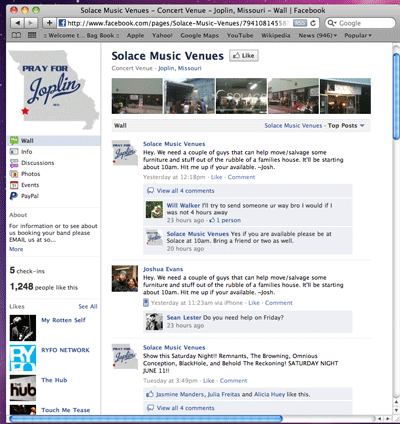By Ian Robinson, Major
What did we do before Facebook? Did we have any social life at all? Or did we just shut ourselves in our homes and ignore our friends and neighbors? Of course we didn’t, but it’s hard to imagine life without Facebook and all the other social networking sites some of us use so frequently today.
My wife, as all good wives do, reminded me the other day that my addiction to social networking was actually antisocial. She said this across the table at a coffee shop while I sat with my face buried in my smart phone checking the status updates of my 978 closest friends. I spluttered some embarrassed reply as she challenged me to explain how ignoring her could remotely be considered “social.” It makes you think.
So how did this social networking phenomenon get such a grip on us? No one really understands the psychology behind it, but when 1.2 billion people worldwide join a social network—82 percent of the world’s Internet population over the age of 15—you know that something really big is going on. I find it somewhat strange that the most socially engaged nation is Israel, where they spend an average of 11.1 hours every month on Facebook, while the U.S. didn’t even make the top ten!
When asked, most users say they like it because it unites them with like-minded people and gives them a sense of connection because of something they have in common. Surveying my own list of friends I found that most were Salvationists, brass band fanatics, family, or people I have met in my travels. Of course, somewhere along the line I have picked up friends who I have never met and know nothing about. Not a bit like real life.
So I am learning how to be a good social networker while not neglecting my face-to-face relationships. Facebook is a wonderful tool for encouraging others, sharing our faith, and keeping in touch with people who might otherwise slip through the cracks of life. Being in development I find it is also a great way to get our message across to the public, not to mention a bit of fundraising at the same time. But we must be very careful not to allow it to displace those most important and intimate personal contacts. After all, the Bible says, Let us not give up meeting together, as some are in the habit of doing, but let us encourage one another—and all the more as you see the Day approaching (Heb. 10:25 NIV). I doubt that God had Facebook in mind when he inspired that Word and sent his only Son into the world for a face-to-face encounter with humanity.












